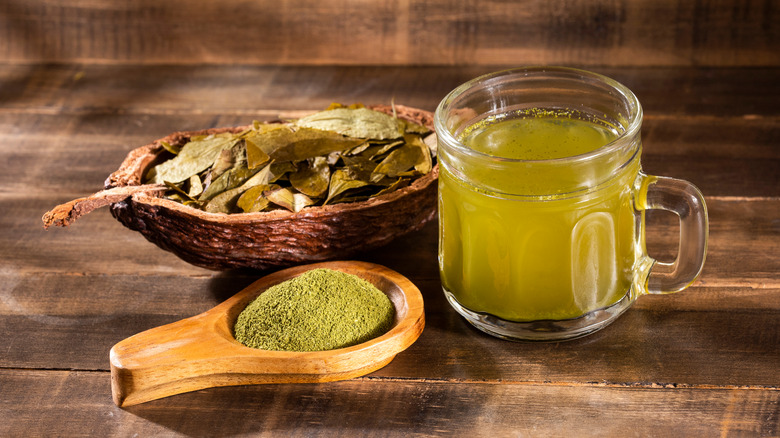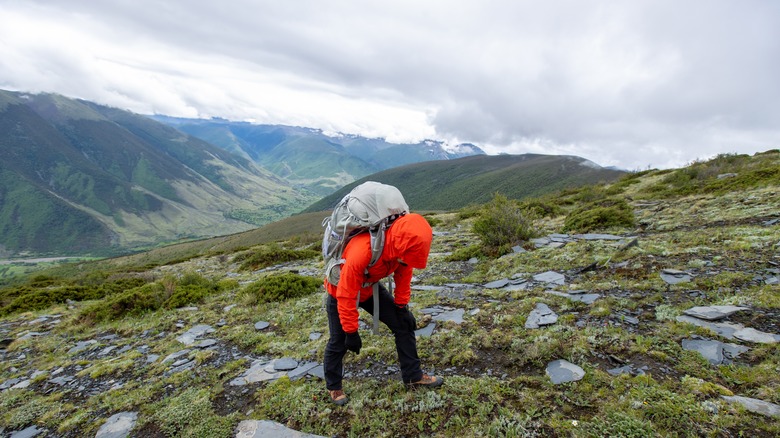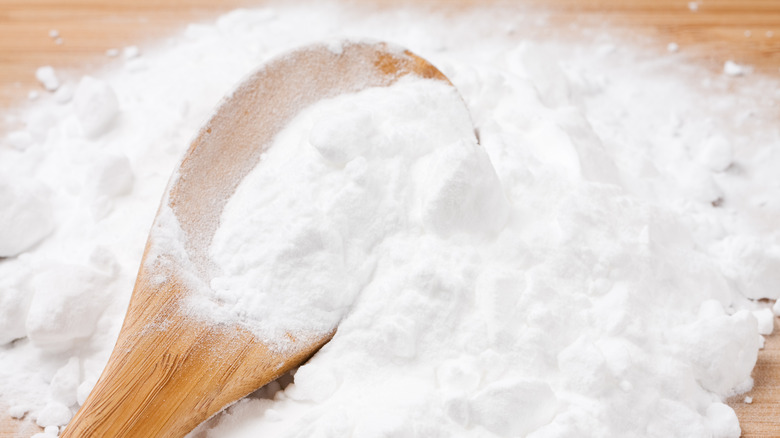Think Twice Before Relying On This Ancient Approach To Remedy Altitude Sickness
Since the easing of COVID-19 travel restrictions last year, Peru has seen a surge in tourist arrivals. And it's no surprise why — from the world's finest cuisines to breathtaking vistas, Peru has certainly earned its acclaim. Amongst outdoor adventurers, Peru is rising in popularity for its myriad of trekking opportunities. From the world-renowned Machu Picchu to the vibrant Rainbow Mountain, Peru's hikes are rich not only in natural diversity but also infused with the country's ancient cultures. While nature lovers are eager to add Peruvian treks to their bucket list of outdoor adventures, one concern looms large — the altitude.
Spanning almost 500,000 square miles (via National Geographic Kids) and home to the second-largest mountain range in the world, Peru boasts many cities and mountain summits that reach well over 10,000 feet in elevation. For visitors from cities at sea level, which include most of those in the United States and Canada, these altitudes pose a major threat to well-being. Altitude sickness is no joke. It can cause serious negative health impacts in the short and long term for folks who do not acclimatize well.
To mitigate the effects of altitude sickness, many Peruvian locals offer foreign visitors coca leaf tea — a traditional remedy believed to alleviate symptoms and aid in acclimatization. However, while coca tea leaves may provide some temporary relief, it's important to approach its consumption with caution. Read on to discover why you should think twice before relying solely on this ancient approach to remedying altitude sickness.
Coca leaf tea isn't clinically proven to alleviate altitude sickness symptoms
In the past, the Incas were known to chew on coca leaves while running their extensive network of trails to transport goods or relay messages. They believed the leaves increased energy levels and combat fatigue, which was particularly beneficial when ascending and descending the steep slopes of the Andes on a daily basis. Moreover, the leaves were thought to alleviate the symptoms of altitude sickness, including headaches, nausea, and dizziness. Over the years, this belief has been passed down, and even today, tour guides encourage their hikers to chew the leaves or drink the tea to assist in their treks.
However, these claims have yet to be substantiated by science. An analysis published in the Wilderness Medical Society reviewed a number of reports that assessed the efficacy of coca leaf tea on altitude sickness. The researchers found that, overall, those who drank coca leaf tea experienced no significant bodily differences than those who didn't. While there are some reports of coca leaf tea aiding exercise performance at high elevations, such as a study in the Indian Journal of Clinical Biochemistry, a more recent study in the Journal of Travel Medicine demonstrates that when these results are compared to the effects of medicines like acetazolamide, coca leaf tea significantly falls short. As such, hikers in Peru are more likely better off taking prescribed medication for AMS, which is clinically proven to physiologically aid those who are at risk of or who have developed altitude sickness.
Drinking coca leaf tea may have legal implications
If you've been reading so far and feel that the coca plant seems familiar, your intuition is spot on. The coca plant is indeed used to make cocaine. Now, the coca leaf in itself is relatively harmless, but it does harbor the compound that is isolated and processed to make the street drug. As a result, the US banned the coca plant in the 1960s. Therefore, tourists returning from Peru should be cautious not to purchase coca leaf tea or products made from coca leaves from souvenir stalls to bring back home.
Beyond simply carrying it, consuming coca leaf tea may pose occupational or legal challenges for some individuals. Because most drug tests for cocaine detect cocaine alkaloids, which are present in the coca plant, a urine test is likely to yield a positive result for those who have recently consumed coca leaf tea. Though this outcome can vary depending on factors such as the amount of tea consumed, the time elapsed since consumption, and individual metabolism differences, as indicated in a study published in the European Journal of Emergency Medicine, it may be wise to avoid the tea or chewing the leaves if you are subject to a drug test for work or other circumstances.


